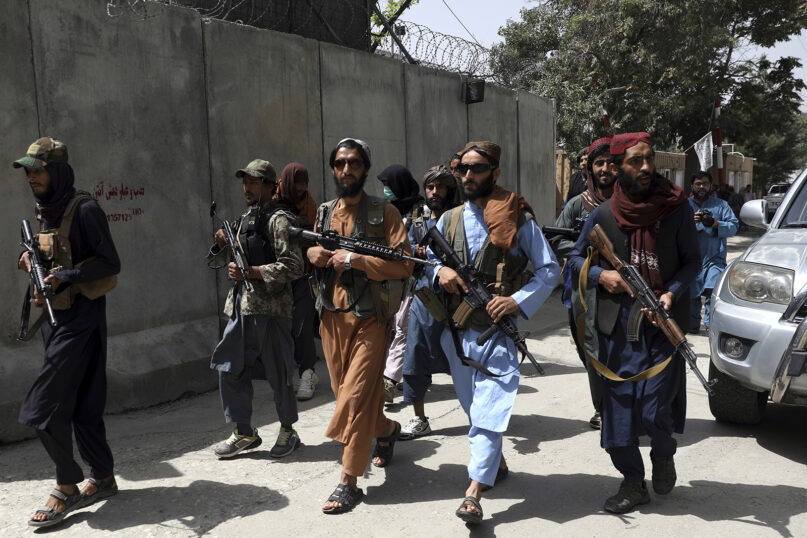(RNS) — I hope to never be so desperate that I cling to a military cargo plane because risking nearly certain death is my best option for survival.
It’s a privilege that I can’t comprehend such visceral fear, when it should be our God-given right as human beings to be able to live in safety and security among those we love.
Watching Afghanistan’s swift collapse has been stunning, and witnessing the human suffering horrific. It’s hard to watch, though there’s privilege in that too, spectating from across the world, knowing that we are far from harm’s way.
RELATED: Biden authorizes new refugee funds, fends off criticism from aid groups
There’s a certain guilt in that, just as there has been for the past 20 years, as our country has waged war elsewhere, destroying other people’s homes, while we watched from here — or if we’re being honest, ignored from the safety of our homes.
But sometimes, extreme suffering can help us cut across our perceived differences and senses of distance, and see the humanity in one another. We saw that with George Floyd’s murder last year, where people of all backgrounds and all across the world felt the pain of racist violence and felt moved into action. This feels like one of those moments.
Over the next months, we need to keep looking — just as many of us have kept examining racial bias at home since the “Floyd summer” and demanding racial equality and justice. As we watch Afghans flee for their lives from an intolerant Taliban regime, we should raise our awareness of how religious minorities have been denied equal rights and massacred by violent extremists for years in Afghanistan, by the Taliban and other groups.

Hundreds of people run alongside a U.S. Air Force C-17 transport plane as it moves down a runway of the international airport, in Kabul, Afghanistan, on Aug. 16, 2021. Thousands of Afghans rushed onto the tarmac at the airport, attempting to flee the Taliban. Video screen grab via Twitter/@Mukhtarwafayee
Just this past March, the Islamic State group claimed responsibility for an attack on a Sikh gurdwara in Kabul in which 25 congregants were confirmed dead. In the 1970s, an estimated 700,000 Hindus and Sikhs lived in Afghanistan; now, only about 700 remain.
If this week’s events, however, remind us who the Taliban are, they also remind people like me what it was like 20 years ago when American troops first invaded Afghanistan and we began seeing its Taliban rulers on the news. As I watch otherworldly scenes over there I realize that that other world can instantly make me an other in my own. It’s striking that our public enemy No. 1 again looks very much like me: a bearded, brown-skinned, turban-wearing Sikh American.
One thing I’ve learned in the past two decades is that people’s perceptions of me often depend on our current foreign policy focus: Growing up, I was “Iraqi”; after the terrorist attacks of 9/11, I was “Osama”; and during the 2010s, I was ISIS. Those perceptions produced not just verbal slurs — they came with violence, including attacks on and murders of people I’ve known and loved.
RELATED: Christian family in Afghanistan appeals to pope to help them flee persecution
Now, as before, I am conscious that people’s ignorance of who Sikhs are, as well as our country’s underlying anti-Muslim bias, will translate into spikes of hate. It’s a matter of fact, as pragmatic as the texts I’ve received from friends and family advising one another to be cautious and vigilant.
The anticipation of hate violence here does not compare to the immense suffering of Afghans who are losing their homes, their livelihoods, their loved ones and so much more. Yet we should ask whether, 20 years after we went to Afghanistan, we have learned to tell an extremist from a person of faith going about their daily lives. Have we learned anything about our own bigotry and extremism, and the rights of religious minorities?
It’s hypocritical for us to point fingers at Afghanistan without looking at our own home, too.
RELATED: How to help Afghans arriving in the US after fleeing the Taliban






